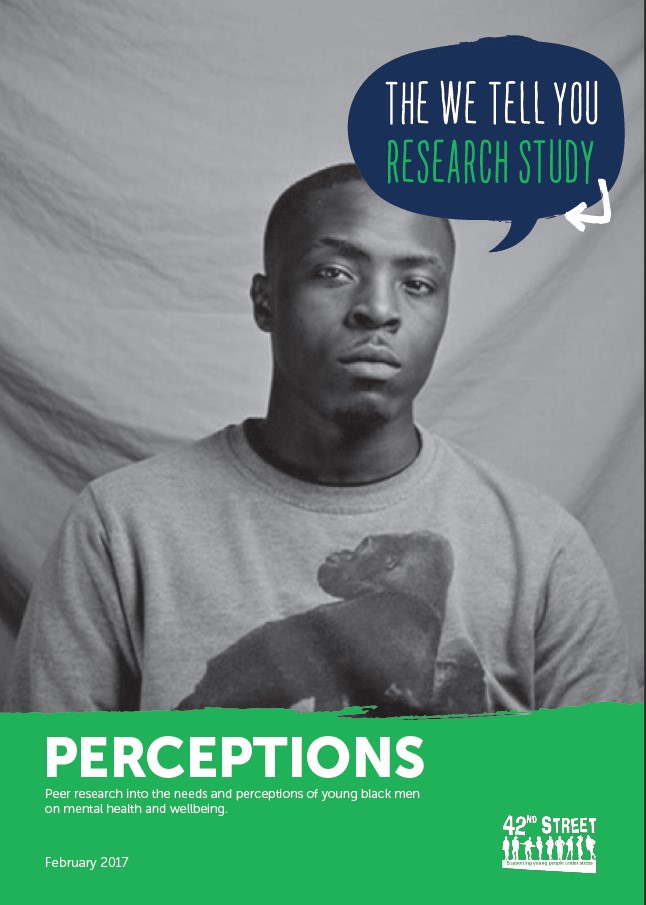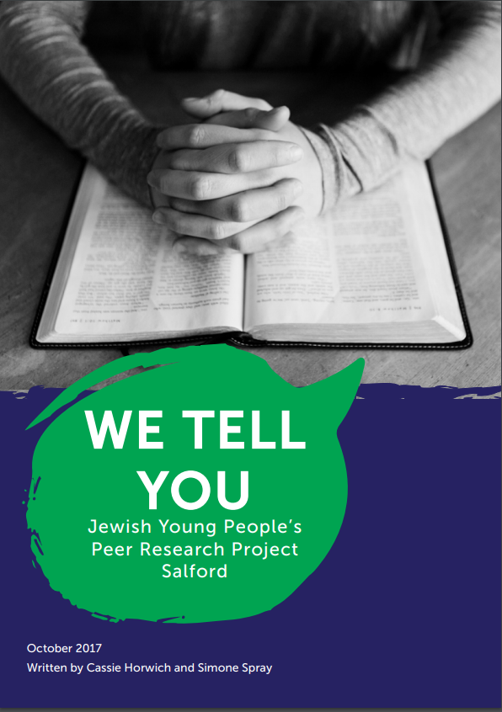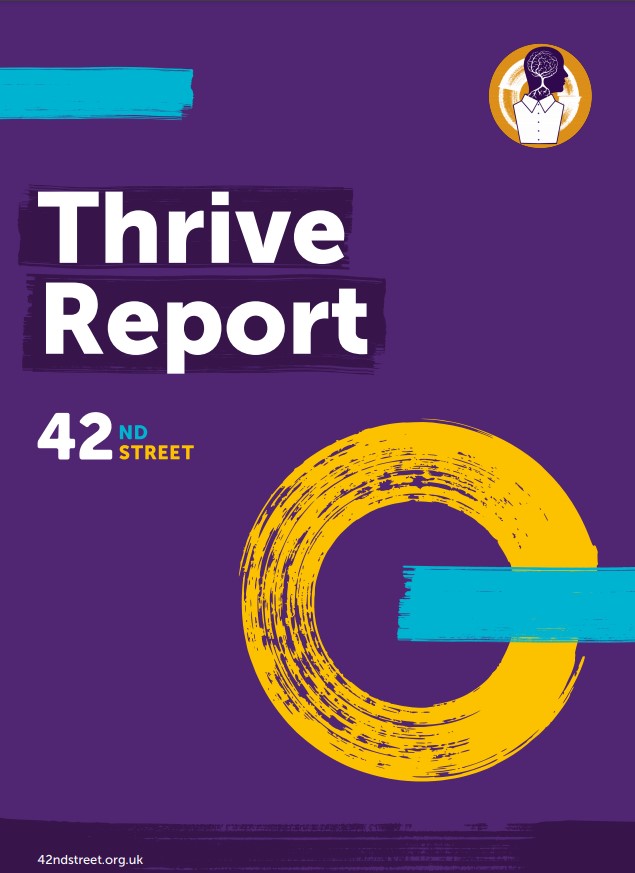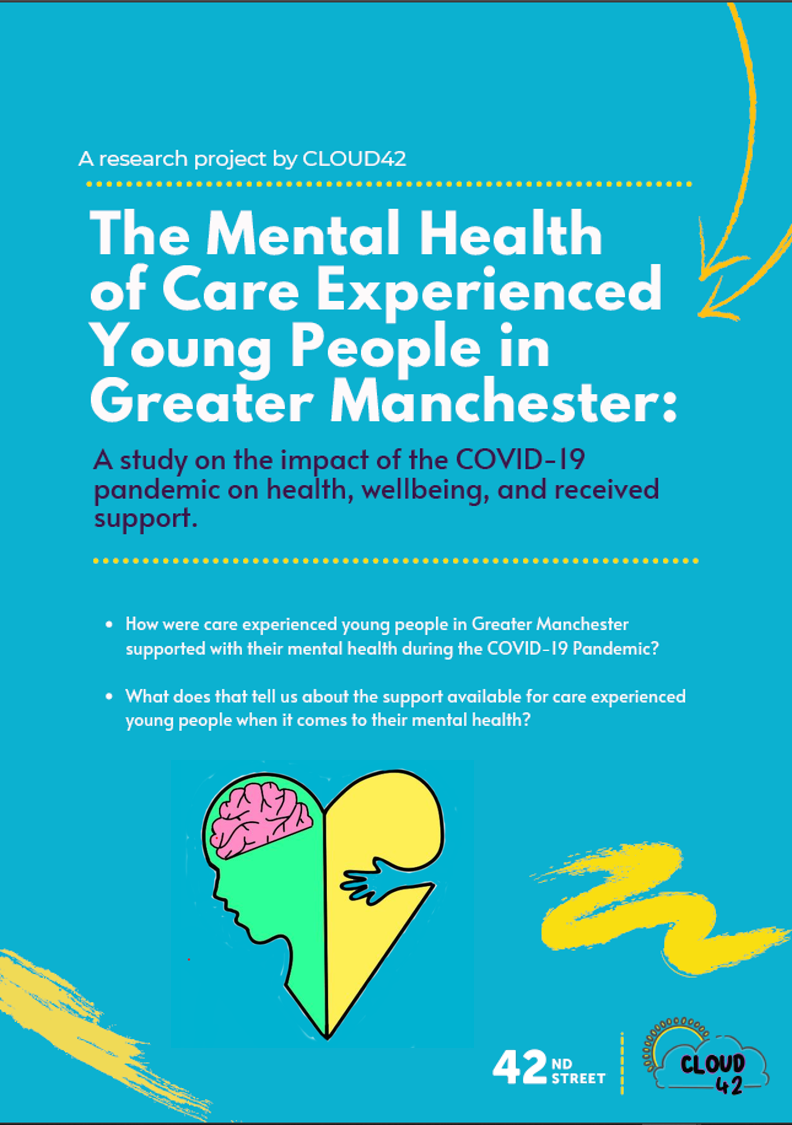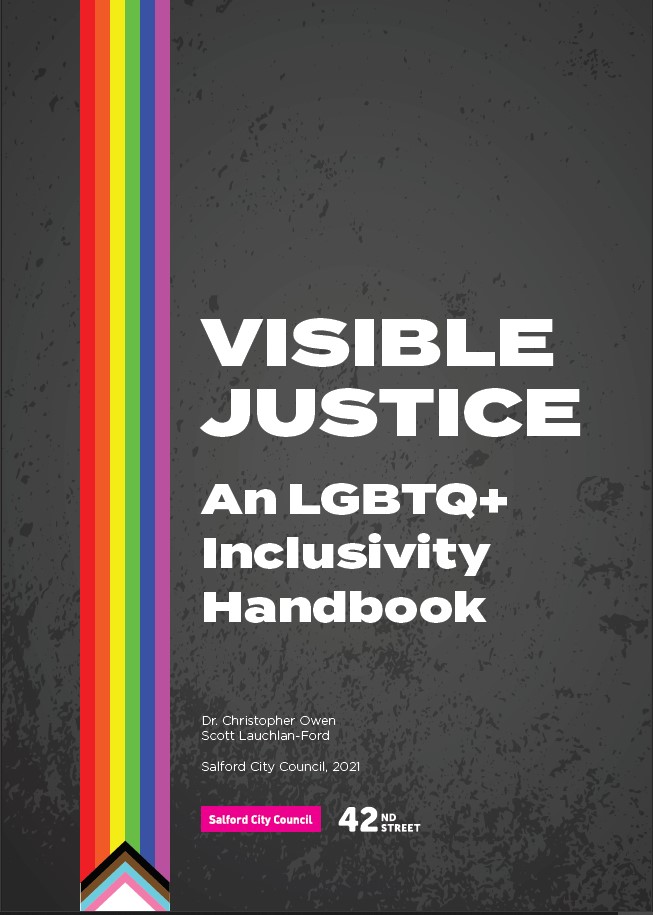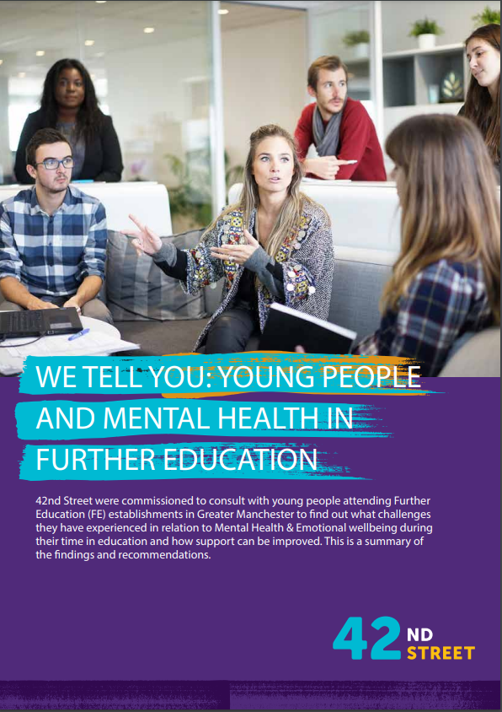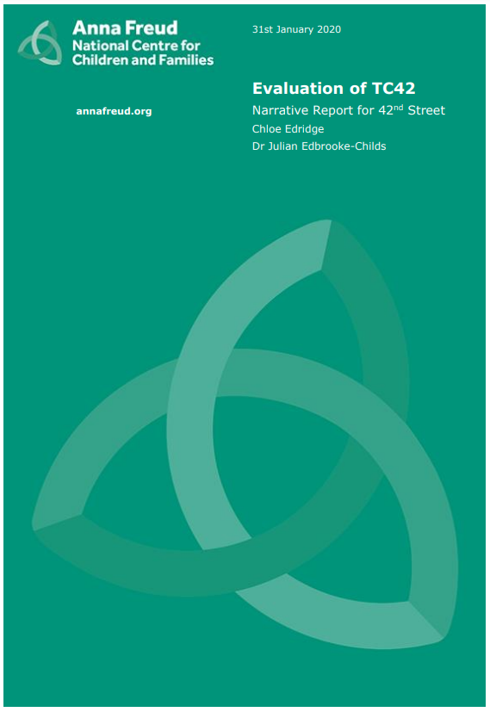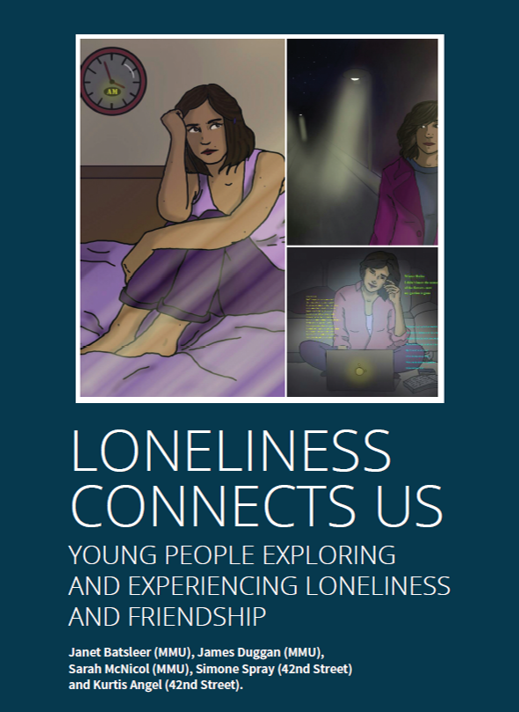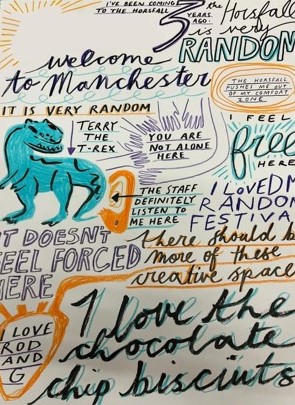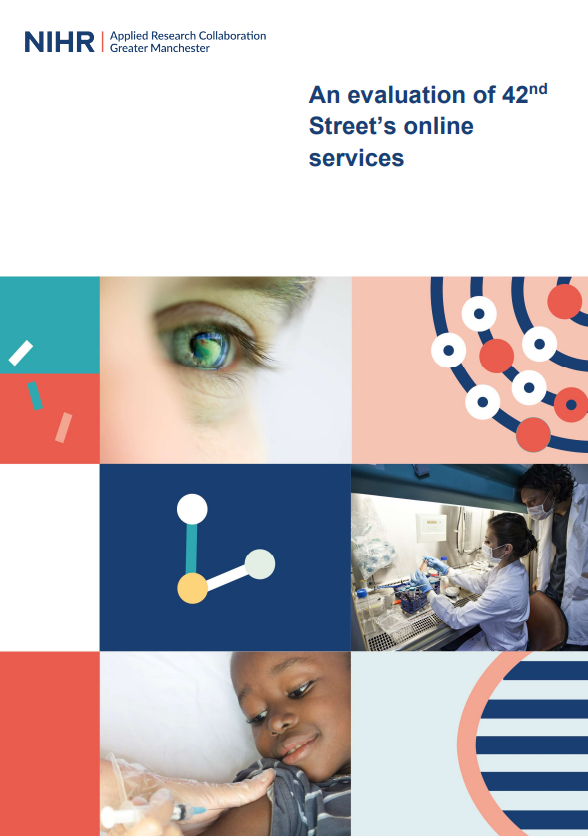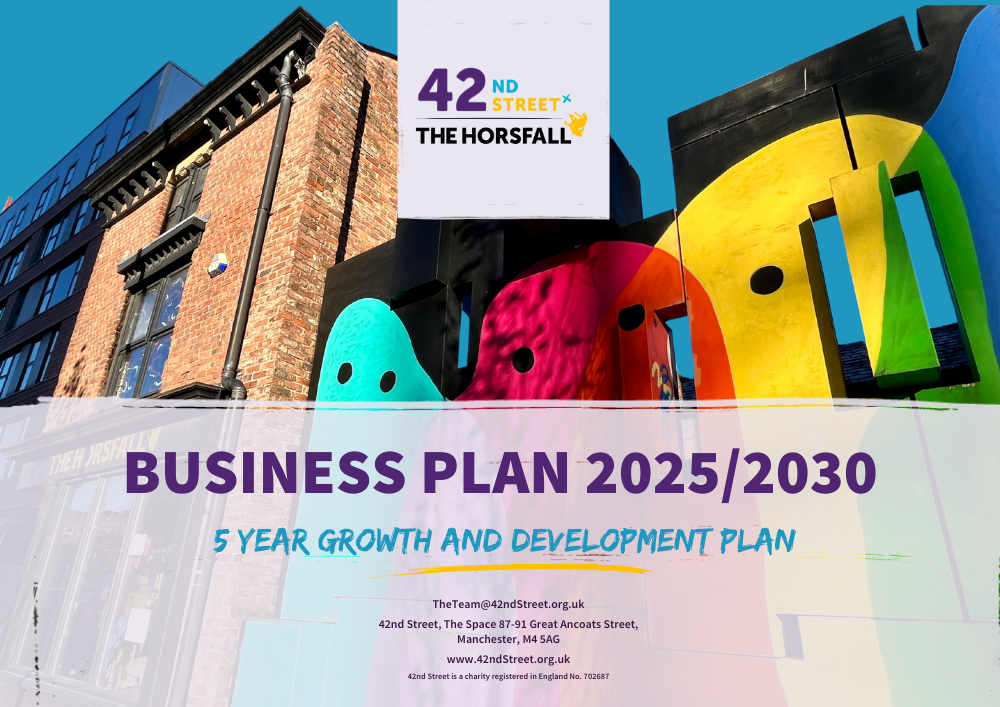Publications and Reports
At 42nd Street we believe in the power of learning and sharing our knowledge. On this page you’ll find a selection of research and projects that we’ve collaborated on, including reports by staff and young people.
An external evaluation of our online support services in collaboration with NIHR and Manchester University (Exec summary)
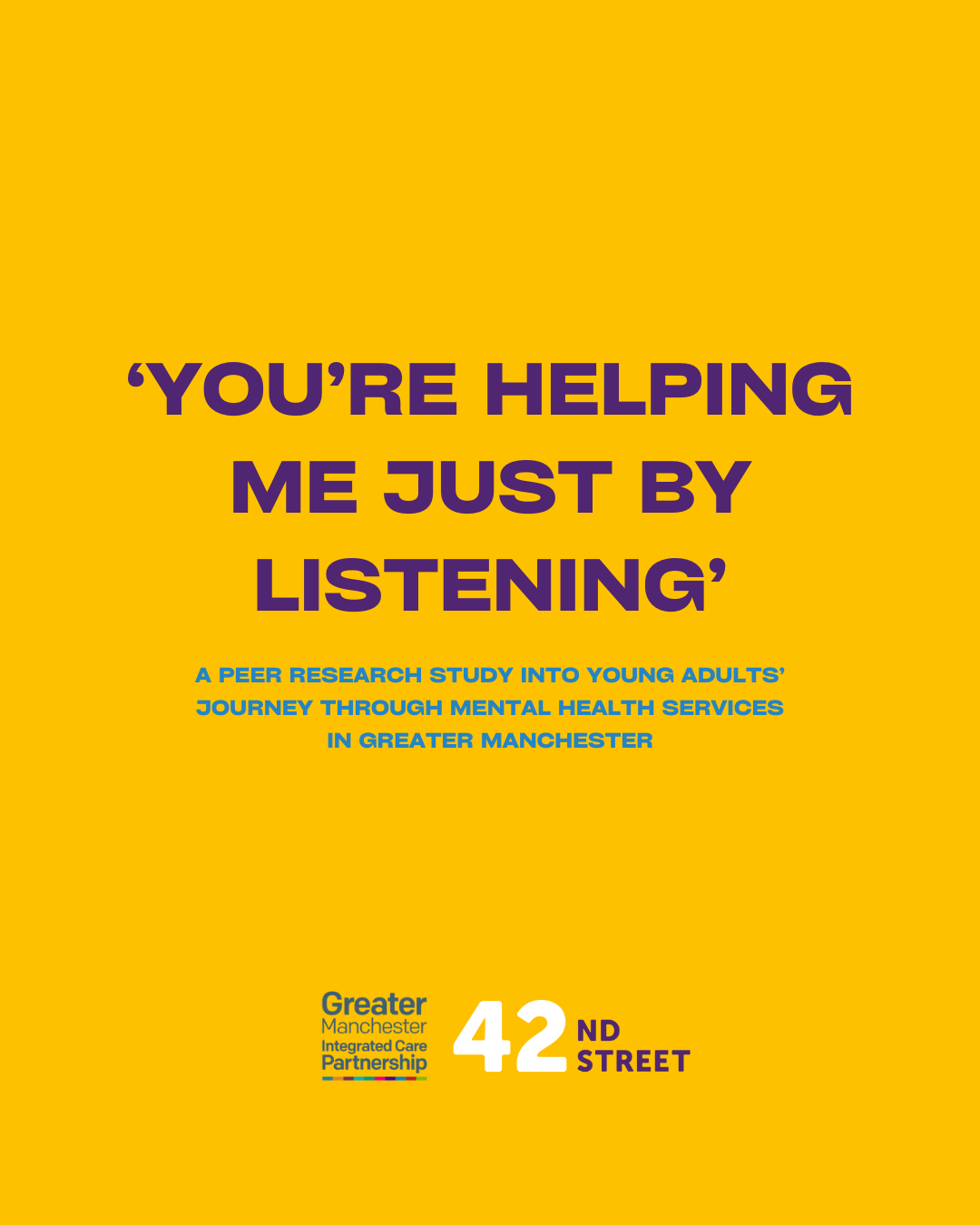
A peer research study with over 150 young adults in Greater Manchester reveals that mental health services often fail to meet their needs. The report highlights barriers like long wait times, complex navigation, and feelings of invalidation, offering five key recommendations for more accessible and personalised support.

A peer research study with over 150 young adults in Greater Manchester reveals that mental health services often fail to meet their needs. The report highlights barriers like long wait times, complex navigation, and feelings of invalidation, offering five key recommendations for more accessible and personalised support.
Older Publications
Evaluation of TC42 by Anna Freud National Centre for Children and Families
This report looked at the democratic therapeutic community approach of TC42, and how the group can facilitate change by creating a safe space for open discussion, connecting and identifying with peers, improving understanding of responsibility and decision making and sharing experiences and advice. Read it here.
The Role Of Online And Online Peer Support For Young People Who Self-Harm: Good Practice Guide
In November 2021 we partnered with organisations across the EU to consider how internet-based services – and specifically online peer support, can meet the need for advice and support for young people who self-harm. This Good Practice Guide was the output of the two year project - the report can be downloaded here.
In and Out of Harm’s Way by Alex
“Hi, my name’s Alex. I am a fictional young person who’s been created by young people as part of a training project designed to explore issues around suicide and self-harm. Alex is a mask we can wear when we’re telling the truth, but feel ashamed to admit that these are our own individual experiences.”
Street Cred? Values and Dilemmas in Mental Health Work with Young People – Bernard Davies
In Street Cred? Bernard Davies offers a critical account of key themes in the development of 42nd Street.
Street Cred 2 – Bernard Davies
Insider perspectives of a young people’s mental health charity based in Manchester (UK) area: the ‘complexity and complication, contradictory pulls, pushes and tensions, often unnerving ebbs and flows – as these are the inescapable realities of work with young people under stress, the discussion of this work demands a sustained search for honest appraisal’.
Not Exactly Congratulations – a research publication exploring the emotional wellbeing of teenage mothers and the relevance of postnatal depression.
This research was prompted by the experience of 42nd Street working with teenage mothers experiencing mental distress and by concerns raised by the Manchester Sure Start Plus programme. The report contains practical recommendations for improved service delivery and contains learning that will be of value to both frontline workers and policy makers.
Beyond Fear and Control – working with young people who self-harm. – Eds. Helen Spandler & Sam Warner
This 42nd Street Reader is about supporting young people who self-harm as a way of coping with distress. It demonstrates why we need to give up the desire to control young people and simply stop them self-harming and why we need to start listening, supporting and empowering them to take control of their own lives.
Who’s Hurting Who? – Helen Spandler
This research report, based on intensive and often disturbingly frank individual and group interviews with young people, sets out to break down some of the barriers to understanding self-harm. It provides vivid evidence of how self-harming and attempts at suicide can have a range of functions.




